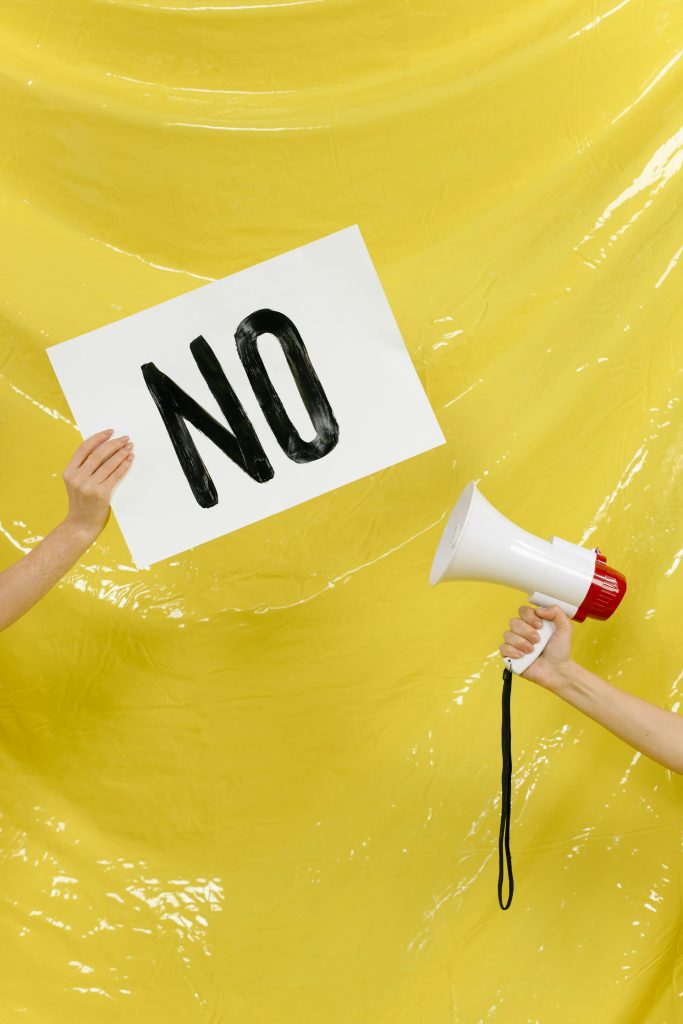We live in a culture that glorifies the hustle. The more you do, the more you’re worth—or at least, that’s what we’re led to believe. But here’s the truth: constantly saying “yes” to everything can leave you burnt out, stressed, and on the fast track to a mental health meltdown. The good news? There’s a simple, powerful solution: learning to say “no.”
Why Saying No Matters
Saying no is often seen as negative or selfish, but it’s one of the most empowering things you can do for your mental well-being. When you say no, you’re not just turning down a task or an invitation—you’re setting a boundary that protects your time, energy, and mental health.
The Cost of Saying Yes Too Often
Every time you say yes to something, you’re also saying no to something else—often, that “something else” is your own peace of mind. Overcommitting leads to stress, anxiety, and even resentment. It can also diminish your productivity and creativity, as you’re stretched too thin to give your best to anything.
The Mental Health Benefits of Saying No
- Reduces Stress and Anxiety: Setting boundaries helps manage the overwhelm. By limiting your commitments, you can focus on what really matters, leading to less stress and a calmer mind.
- Boosts Self-Esteem: Saying no reinforces your self-worth. It’s a way of acknowledging that your time and energy are valuable, which can significantly boost your confidence.
- Enhances Relationships: When you set clear boundaries, you’re less likely to feel resentful towards others. This leads to healthier, more honest relationships where you feel respected and understood.
- Increases Productivity: With fewer distractions and obligations, you can focus on your priorities, leading to better results and a greater sense of accomplishment.
How to Say No Like a Pro

1. Be Clear and Direct
When saying no, keep it simple and straightforward. There’s no need for long explanations or apologies. A polite, “Thanks for thinking of me, but I won’t be able to take this on right now,” is often enough.
2. Offer Alternatives (When Appropriate)
If you genuinely want to help but can’t commit, offering an alternative can be a good middle ground. “I can’t do that, but I can help you with X instead,” shows that you’re still supportive without overextending yourself.
3. Practice Saying No
It might feel uncomfortable at first, especially if you’re used to being a “yes” person. Start small—practice saying no to minor requests, and gradually work your way up. The more you do it, the easier it becomes.
4. Prioritize Your Commitments
Before agreeing to anything new, take a moment to assess your current commitments. Will taking this on add value to your life or work? Or will it just add more stress? Prioritizing what truly matters will make it easier to decline the rest.
5. Remember Your “Why”
Understanding why you need to say no can strengthen your resolve. Whether it’s to protect your mental health, spend more time with loved ones, or focus on a critical project, keeping your “why” in mind makes it easier to set those boundaries.
Dealing with the Guilt
It’s normal to feel a pang of guilt when you start saying no, especially if you’re a people-pleaser by nature. But remember, saying no doesn’t make you a bad person—it makes you a healthier, happier one. And that’s something everyone around you will ultimately benefit from.
Final Thoughts: Embrace the Power of No
Saying no is a skill, and like any skill, it gets easier with practice. The more you embrace it, the more you’ll see how it positively impacts your mental health, productivity, and overall happiness. So next time you’re faced with a request that doesn’t align with your priorities or values, don’t be afraid to wield the power of no—it’s one of the best things you can do for yourself.